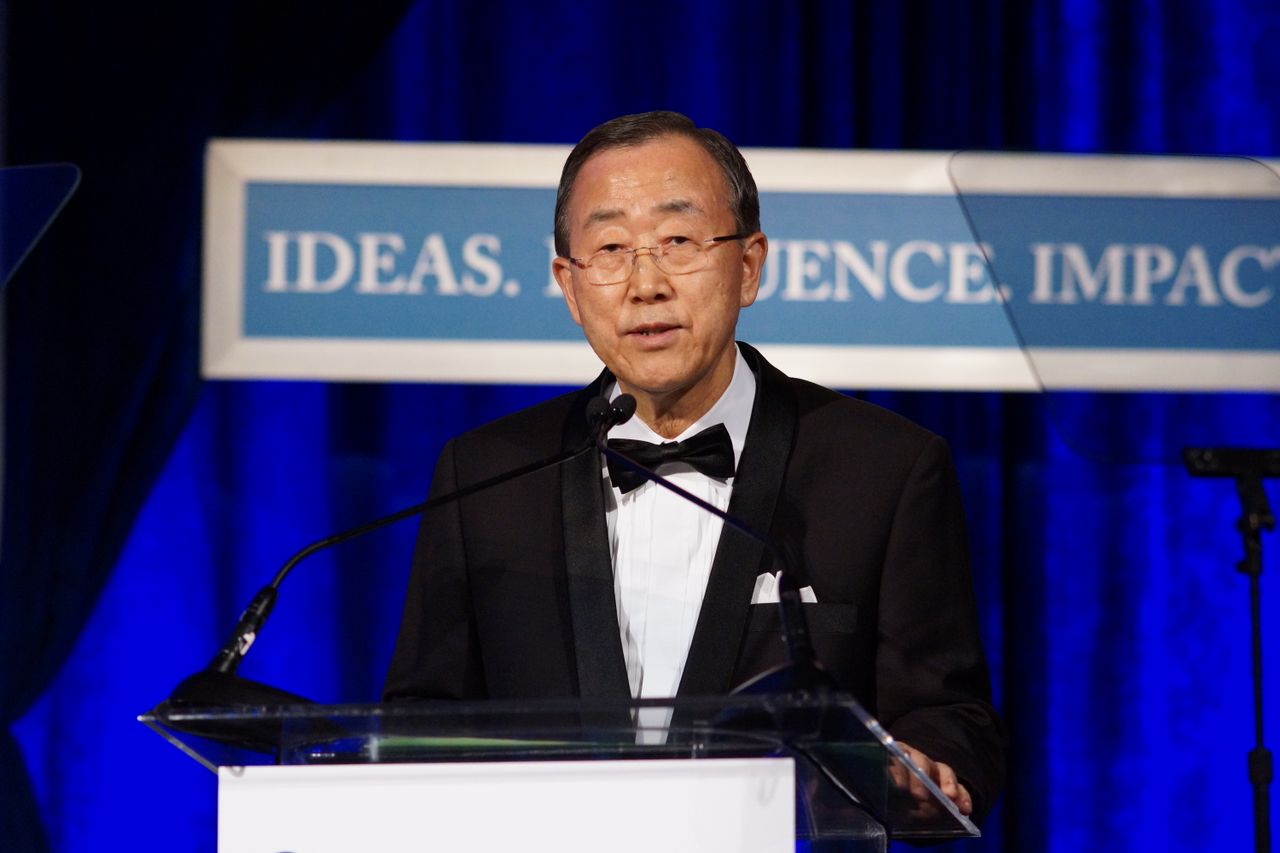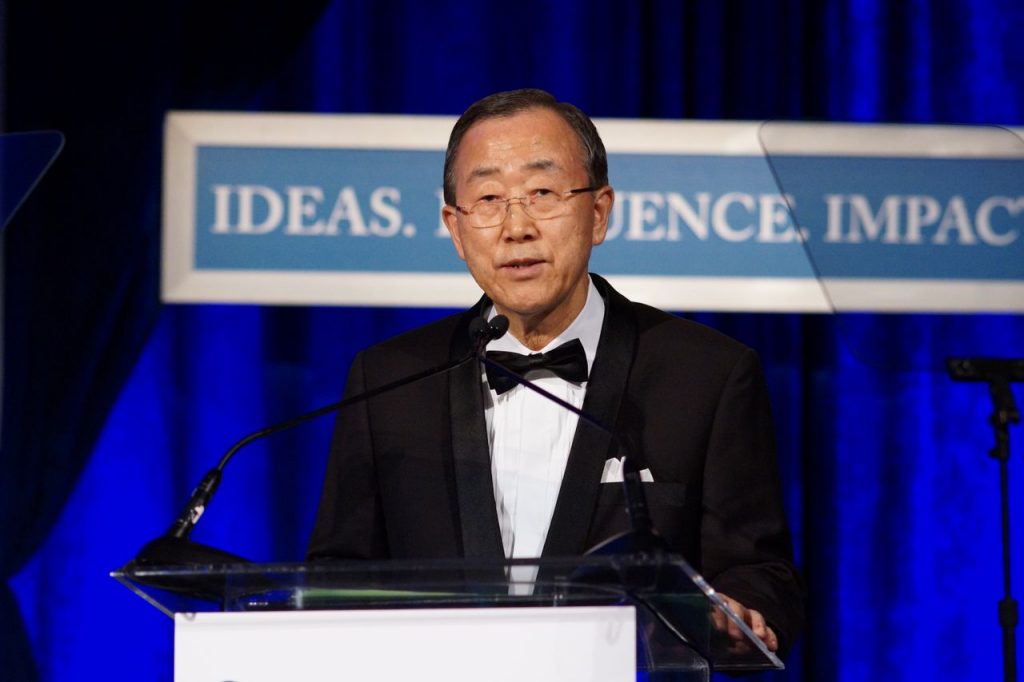 UN Secretary-General Ban Ki-moon hinted that Syrian President Bashar al-Assad will suffer the fate of Laurent Gbago, Charles Taylor, or Muammar Qaddafi if his reign of violence continues. He declared, “no leader, anywhere, should imagine that he—or she—enjoys impunity for crimes of atrocity.”
UN Secretary-General Ban Ki-moon hinted that Syrian President Bashar al-Assad will suffer the fate of Laurent Gbago, Charles Taylor, or Muammar Qaddafi if his reign of violence continues. He declared, “no leader, anywhere, should imagine that he—or she—enjoys impunity for crimes of atrocity.”
Speaking at the Atlantic Council Awards Dinner, where he received the award for Distinguished International Leadership, Ban alluded to the fate of leaders who lose legitimacy with their own people and the world community.
He observed that, “When an incumbent president refused to stand down after losing an election in Cote d’Ivoire … when he threatened his people with civil war in order to preserve his own power … we stood firm for democracy and human rights. Today, Laurent Gbagbo is awaiting trial in The Hague — and a legitimate president, Alassane Ouattara, is in office.”
He continued, “When Muammar Qaddafi threatened to kill his own people, we acted. In doing so, we gave force to a fundamental new principle — the ‘Responsibility to Protect.’”
And, he noted, “Ten days ago, Charles Taylor was found guilty by our special court for Sierra Leone. Today I say: no leader, anywhere, should imagine that he — or she — enjoys impunity from crimes of atrocity.”
With respect to Syria, he noted that , “The government continues to assault its people. Every day, we see the most appalling images — tanks firing in city centers …innocent civilians dying, even children.” Therefore, Ban declared, “We are in a race against time to prevent full-scale civil war — death on a potentially massive scale.”
While lauding the work of UN monitors on the ground and the efforts of his predecessor, Kofi Annan, as Joint Special Envoy, Ban cautioned, “We cannot predict how this will end. But we do know there can be no compromise on fundamental principles of justice and human rights, in Syria or elsewhere. No amount of force can squash people’s aspirations to live in dignity and decency.”
He vowed, “Those responsible for ordering or carrying out such acts — in Syria or elsewhere — will be held accountable by the international community.”
What’s particularly interesting about the secretary-general’s examples is how different they are.
Gbago was forced from power through a combination of external sanctions—notably from Nigeria and the EU—and internal violence. Ouattara didn’t just have the moral justice of an electoral victory on his side, he had an army. Whether Gbago was ultimately arrested by those forces or by the French is still in dispute. In any case, he was ousted from power within weeks and now awaits trial at the ICC.
Taylor, by contrast, came to power through civil war and faced armed rebellion throughout most of his reign. Once forced from power, he spent several years in hiding from various arrest warrants before ultimately captured and subjected to a prolonged trial.
Qaddafi, of course, was ousted through the efforts of a NATO coalition ostensibly acting under UN Security Council Resolution 1973 and was shot in the head while in the custody of opposition forces, not brought to trial.
The Russian and Chinese governments expressed great displeasure at how quickly an R2P mission with a mandate to protect civilians morphed into a regime change operation. Brent Scowcroft and others believe that this experience makes them much less likely to back a Security Council resolution against Assad.
James Joyner is managing editor of the Atlantic Council.
